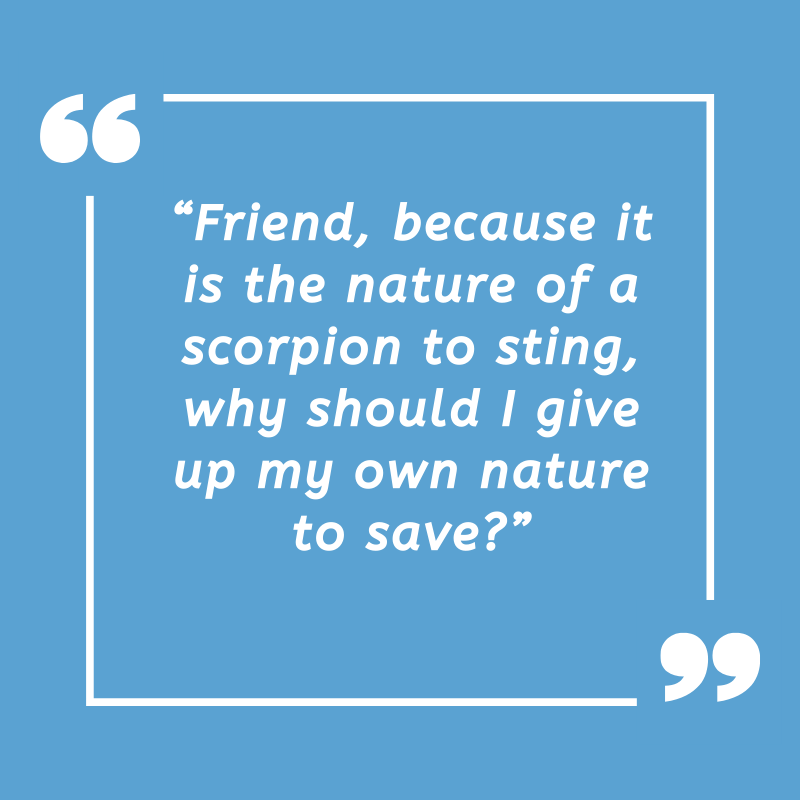
Way back in the archives of my blog files, I talked about the “core virtues” that guided my studies in nursing school: a list of attributes that were deemed necessary for a nurse to exemplify. I mentioned three (humility, intellectual honesty, and compassion) that seemed particularly important in my nursing career at that point. Recent events have repeatedly brought me back to the virtue of compassion, and I’d like to simply talk a bit more about how compassion is a crucial part of nursing for me (and I hope, for many other nurses).
I’d like to begin by sharing a story I came across several days ago. The story is taken from Henry Nouwen’s excerpt “Compassion” from America, written on March 13, 1976. I want to put it here, word-for-word, because I think it is most powerful in its original language.
“Once there was a very old man who used to meditate early every morning under a large tree on the bank of the Ganges River in India. One morning, having finished his meditation, the old man opened his eyes and saw a scorpion floating helplessly in the strong current of the river. As the scorpion was pulled close to the tree, it got caught in the long tree roots that branched out far into the river. The scorpion struggled frantically to free itself but got more and more entangled in the complex network of the tree roots.
When the old man saw this, he immediately stretched himself onto the extended roots and reached out to rescue the drowning scorpion. But as soon as he touched it, the animal jerked and stung him wildly. Instinctively, the man withdrew his hand, but then, after having regained his balance, he once again stretched himself out along the roots to save the agonized scorpion. But every time the old man came within reach, the scorpion stung him so badly with its poisonous tail that his hands became swollen and bloody and his face distorted by pain.
At that moment, a passerby saw the old man stretched out on the roots struggling with the scorpion and shouted: “Hey stupid old man. What’s wrong with you? Only a fool risks his life for the sake of an ugly, useless creature. Don’t you know that you may kill yourself to save that ungrateful animal?
Slowly the old man turned his head, and looking calmly in the stranger’s eyes, he said: “Friend, because it is the nature of a scorpion to sting, why should I give up my own nature to save?”
When I read this for the first time, it hit me pretty hard. It has been several weeks since I began working as a Registered Nurse in Allergy, Asthma, and Immunology, and one of the most challenging things is with working with noncompliant patients over the long term. Most allergies, asthma, and immunodeficient conditions are lifelong, and my job in the outpatient setting is to help my patients manage the difficulties that come with such diagnoses. It’s possible to have a high quality of life, but it depends on factors like education and empowerment on my end as well as a responsibility on the patient’s end.
For the most part, the patients who are most compliant with treatment seem to be those who suffer from severe food allergies. It makes sense, right? If someone has a known shellfish allergy, he or she will avoid shellfish or risk having an anaphylactic episode. When the stakes are literally life or death, a patient will (reasonably) make the decision for life. Having compassion for a patient with food allergies means ensuring the patient has access to injectable epinephrine at all times, educating the patient on safe foods vs unsafe foods, and truly listening to the effect that food avoidance has on the patient’s home and social life. I’ve worked with children who are allergic to almost everything under the sun: peanut, tree nut, egg, wheat…and my heart goes out to them. I do my best to help the families I see so that the food allergy does not become a burden.
Testing My Compassion.
Another group of very compliant patients seems to be those who suffer from chronic hives. When first-line medication treatments fail, allergists will recommend a treatment called Xolair, a subcutaneous biologic agent. A lot of our patients experience relief from the itchy, raised bumps when they start Xolair, even if the hives have been present for years. With these results, it makes sense that these patients are compliant with treatment. It’s rare for patients receiving Xolair to cancel at the last minute, miss an appointment, or cause a delay in treatment.
On the flip side, we have patients who are anything but compliant. One specific patient comes to mind, and his asthma management is simply abysmal. He frequently visits the emergency department due to asthma exacerbations, yet he will not take his inhalers regularly nor avoid known triggers for his asthma. It feels like I am a broken record at times because my asthma education is now on repeat for him. I wish my teaching would go straight to his head and heart. I want him to take ownership of his own health. When we received a notification that he had yet again visited the hospital to treat an asthma attack, the last thing on my mind was compassion towards this man.
It’s out of my control.
And then I read the story of the old man and the scorpion just a few days later. I was overwhelmed by the realization that I cannot control the actions of patients. It’s not my job to force others to adhere to a health regimen, and it is not a reflection of my nursing ability if a patient decides to deviate from his health plan. It is within my power to respond to such patients with compassion. Just as the old man in the story pointed out, my nature does not depend on a patient’s actions. Therefore, I can let go of any feelings of control or guilt when a patient willingly decides to be noncompliant, and I can respond with compassion.

Morgan is a new Nursing graduate living in Boulder, Colorado. She shares her insight and advice on the nursing profession.










Write a comment: